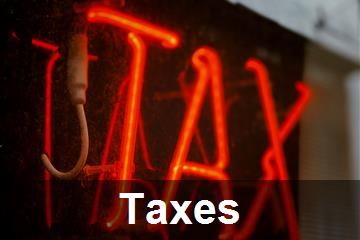
07 dic 2024
The recent legislative amendment introduces a significant change in the tax incentives for investments in innovative startups and SMEs, allowing tax deductions to be converted into tax credits.
This change aims to enhance investment in innovative enterprises by providing flexibility in tax benefits, especially in cases where deductions exceed the investor's tax liability.
The amendment, approved by the Finance Committee, is set to be discussed in the Chamber for final approval.
This critical review examines the implications of the new law, its potential impact on investment behavior, and the challenges it may pose.

The legislative amendment recently approved by the Finance Committee introduces a pivotal change in the tax incentives framework for investments in innovative startups and small and medium-sized enterprises (SMEs). This change allows tax deductions to be converted into tax credits, which can be utilized in tax declarations or offset through the F24 form.
This development stems from a parliamentary initiative aimed at promoting and developing innovative startups and SMEs through fiscal benefits and investment incentives.
The amendment is set to be discussed in the Chamber for final approval.
The definitions of startups and innovative SMEs are derived from Article 25, paragraph 2, of Decree-Law 179/2012 (Law 221/2012, known as the Startup Act) and Article 4 of Decree-Law 3/2015 (Law 33/2015), respectively.
The primary innovation of the newly approved law is encapsulated in Article 2, which modifies the discipline of the Irpef deduction under the de minimis regime recognized by Article 29-bis of Decree-Law 179/2012.
To provide a brief overview of the current framework, Article 29 of Decree-Law 179/2012 rewards investments in the risk capital of innovative startups through deduction and deduction mechanisms.
Specifically, the incentive applies to risk capital investments made from January 1, 2017, under the following conditions: individuals are entitled to a deduction from the gross Irpef tax equal to 30% of the invested amount, up to a maximum of 1 million euros; legal entities are entitled to a deduction from the Ires taxable amount equal to 30% of the invested amount, up to a maximum of 1.8 million euros.
These incentives are automatically available during the tax return process and apply to both direct investments in innovative startups and indirect investments through OICRs and other companies that predominantly invest in innovative startups and SMEs.
Since 2017, the benefit is contingent upon maintaining the investment in the innovative startup ('holding period') for a minimum of three years.
Article 29-bis, introduced by Article 38, paragraph 7, of Decree-Law 34/2020, provides additional fiscal incentives under the de minimis regime for investments in innovative startups, which operate as an alternative to those already recognized by Article 29.
From the gross income tax of individuals, 50% of the amount invested by the taxpayer in the share capital of one or more innovative startups can be deducted, either directly or through OICRs.
The deduction applies exclusively to innovative startups registered in the special section of the Business Register at the time of investment.
The maximum deductible investment cannot exceed 100, 000 euros per tax period and must be maintained for at least three years.
Any partial or full disposal of the investment before this period results in the loss of the benefit and the obligation for the taxpayer to return the deducted amount, along with legal interest.
Regarding innovative SMEs, Article 4, paragraph 9-ter, of Decree-Law 3/2015 grants a similar Irpef deduction of 50% for investments (both direct and indirect) in the share capital of one or more innovative SMEs.
For innovative SMEs, the maximum deductible investment cannot exceed 300, 000 euros per tax period.
The amendment aims to further stimulate investments in innovative enterprises by allowing the tax benefit to be enjoyed even in cases of 'insufficiency, ' where the deduction exceeds the gross tax owed by the individual investor.
In such cases, the non-deductible excess can be converted into a tax credit, usable in the tax declaration or offset through the F24 form.
The tax credit thus determined is available in the tax period in which the tax return is filed and in subsequent tax periods.
The novelty applies to investments made from the tax period following the one in progress as of December 31, 2023.

